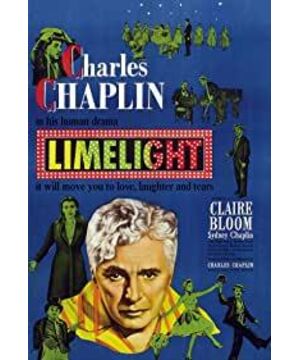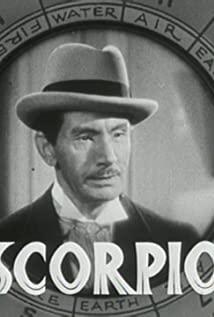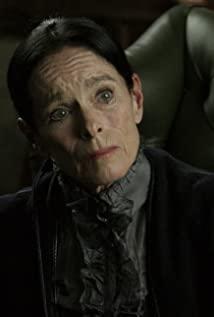Engels said: "What we can now speculate about the order of the relations between the sexes after the imminent disappearance of capitalist production is mainly negative, and mostly limited to what will disappear. But , what will replace it? This will only be determined when a new generation grows up: this generation of men will never buy women's devotion with money or other means of social power in their lifetimes; She will never commit herself to a man because of some other consideration, or refuse to commit herself to a man she loves out of fear of financial consequences. Once such a person comes along, they will never be able to do anything that people think they should do today. will be ignored, they themselves will know how they ought to act, they themselves will create their own social opinion about each person's behavior to suit it - that's all."19
This passage of Engels has found a key to the "mystery" we discussed earlier. Chaplin was not a Marxist, but he was in the United States, a country with developed capitalist production relations. His experience of being close to the people at the bottom of the capitalist society and their lives and his humanitarian worldview have made him in the United States. The problems proposed to be solved in "Stage Career" are close to the level of Marxists. The reason why the tragic heroine Ti Li's spiritual world and her view of love is not received by the society, the reason why she is not tolerated by the people around her, and the reason why she has been distorted and wronged is that she is already in free love and marriage. The understanding of relationship issues has taken a step forward and has reached a height beyond the times. Therefore, the tragedy of her and her and Cavallo under the existing social order and public opinion is inevitable. But the tragic and progressive significance of the film lies in the fact that Chaplin insisted on, rather than gave up, the hope and pursuit of this ideal of life by creating the image of the heroine Tilly. "This is a song of love and hope, and it expresses an extremely painful situation in the most painful details." 20 Obviously, "Stage Career", which expresses this "extremely painful situation", is by no means a single "Optimistic tragedy", on the contrary, it has become "hard drama", so it should be a sad tragedy. Only the word "sorrow", an aesthetic category, objectively conforms to the connotation and meaning of the noble and beautiful human nature and spiritual character of the two tragic protagonists, especially Tilly, in the specific context of the tragic works. "Sorrow" is not passive, it is the only possible way of complaining and protesting for a single small person in the face of the huge dark society. Therefore, the tragic image of Ti Li, the highest achievement of Stage Career, should belong to a kind of "sorrowful beauty" in its aesthetic category. Speaking of lamentable beauty, I am reminded of the two passages of the Hungarian film theorist Balaz at the end of the 24th section of his book Aesthetics of Film about the Swedish film actress "Garbo's Beauty". Baraz's exposition of the highest value of this beauty may serve as a footnote to the highest value evaluation of Tilly's "sorrowful beauty":
"...The beauty of Garbo is a more elegant and noble beauty, precisely because it bears the marks of sadness and loneliness. For no matter how beautiful the lines of the face may be, if it is covered with smiles of joy, If it is cheerful and cheerful, if it can be cheerful and cheerful in a world like ours, then it must belong to the face of those who lack noble sentiments. Even the average insensitive person can understand: a The beauty of sad suffering, the gesture of fear of the filthy world, expresses the noble qualities of man and the pure and noble soul more than smiles and ecstasy. Garbo's beauty is a gesture of rebellion against the world Beauty.
"Millions saw in her face the indictment of the world, millions who may not have realized they had to make an indictment for their suffering, yet they praised Garbo's indictment and found what she had Beauty is the crown of beauty. "22
"Stage Career": The End of the Chaplin Era in Hollywood
"Stage Career" has such a masturbating subtitle in the film's opening title:
the charming light of footlights...
the old age goes on, and
the young comes on the stage. 23
And The original title of the film is Lime Light, which means the strong light on the stage. Undoubtedly, the title and opening subtitles imply the life of the actors who are immersed in the stage career, and even the life of the human beings on the big stage of the whole society, just like the stage lights. In that way, flickering, flickering, and flickering are the repeated alternation and metabolism of light and dark. The mind of human beings has stimulated the power of human beings to keep striving for metabolism, so that the human life, although small in the universe, has greater value and value than celestial bodies such as the sun, which are huge and needlessly consume their own energy but do not know how to think. Meaning. Humans in the universe are masturbating about the meaning of life, that's all.
The film ends with Cavallo's tragic end to his stage career. When Cavallo was lost on the stage that produced Cavallo, it was also the day that Hollywood, which produced Chaplin, lost Chaplin. Sadur recorded in his "History of Cinematic Art" that Chaplin, "the solitary artist, declared 'I declare war with Hollywood' in 1947. At the end of 1952, in order to travel to Europe to host the "Stage Career" The premiere ceremony, and has since left the United States. Because during his journey across the Atlantic, the United States government has announced that he is prohibited from returning to New York. The protagonist of the film "Stage Career", the comedian Cavallo, was persecuted in his lonely old age. The situation is to some extent a portrayal of Chaplin himself.”24 Chaplin seemed to have a prescient view of his own tragic fate, presupposing his tragic end in America through the tragedy of Stage Life. Sexual endings show up. Chaplin entered Hollywood, just when American Hollywood began to rise in the world film circle, or it was Chaplin's entry into Hollywood that made American Hollywood films famous all over the world. Just as British capitalism colonized the land of North America and produced the United States, and thus realized the heyday of capitalism in the United States, it was the British actor Chaplin who immigrated to the United States and produced the Chaplin movies, thus realized in Hollywood. The world fame of his films and constituted the entire Chaplin era in Hollywood. Chaplin's success in Hollywood was the epitome of the heyday of world capitalism in the United States at that time. The prosperous American capitalist economic and social system, by virtue of free competition, inevitably constitutes the demand and exploration of talents, which is reflected in culture and art, and provides the most favorable environment and opportunity for the full display and exertion of Chaplin's artistic genius. American Hollywood and Chaplin are twins; the contradiction between Chaplin and Hollywood is the result of the internal political and economic crisis in American society reflected in the ideological and cultural fields. Chaplin could not leave Hollywood, and Hollywood could not leave Chaplin; but Chaplin had to leave Hollywood, and Hollywood had to expel Chaplin. Facts have proved that after "Stage Career", Chaplin's break with Hollywood also ended the entire Chaplin era in American Hollywood; and the flower of Chaplin's art that left the soil of Hollywood has withered since then. Since then, Chaplin has not made any influential films25. "Stage Career" is also in this sense the pinnacle of Chaplin's genius, albeit in a negative way. Meanwhile, Hollywood, the once charming "Hollywood" (Hollywood) Wood), after losing Chaplin, an old holly tree that truly preserves youth and life, it finally became a dry garden wasteland with the name of holly forest, and Hollywood declined rapidly because of it. Backed by strong diplomatic and commercial means, the foreign market for American films remained sluggish (for example, in France, American films accounted for 52 percent of the show in 1947, falling to 35 percent in 1951).”26 , and the upsurge of national films in various countries in the world has thus set off. Chaplin's "Stage Career" finally became the end of the entire Chaplin era in American Hollywood, and it also symbolized the end of an entire era in Hollywood itself. This has to be said to be the real tragedy of Chaplin, and it must also be said to be the real tragedy of Hollywood; just like "Stage Life" itself, contrary to all Chaplin's consistent comedy works, has become an aesthetic overall The same can be said of "true tragedy"27 works that can no longer have a comic element or an optimistic tone; it can even be said—with pardon me being harsh—that it is all that tries to study Chaplin and not Chaplin at all. "Stage Career", or a Tragedy of Chaplin researchers who equated the significance of "Stage Career" with that of Chaplin's other films, a real tragedy that cannot be optimistic.
From November 12 to 17, 2000, it was finalized according to the draft dated July 9, 1979
and recorded in Meiyuan Pavilion, Hangzhou
. Notes:
19 Engels: "The Origin of the Family, Private Property and the State", Selected Works of Marx and Engels, Vol. 4, p. 79.
20 George Sadur: History of Cinematic Art (Chinese translation) p. 342.
21 On October 29, 1952, Chaplin made it clear at a press conference for the French premiere of "Stage Career" at the Ritz Hotel in Paris that his "the tone of the film is very melancholy" . See George Sadur: "The Life of Chaplin" (Chinese translation), p. 164, translated by Han Mo and Xu Jizeng, China Film Publishing House, September 1980.
22 Bella Ballaz: "Aesthetics of Film" (Chinese version) pp. 270-271, translated by He Li, Shao Mujun School, China Film Press, October 1982, 2nd edition.
23 Selected Screenplays by Chaplin, p. 325.
24 George Sadur: History of Cinematic Art (Chinese translation) p. 342.
25 Chaplin also made two less successful films, "A King in New York" (1957) and "The Countess of Hong Kong" (1966), both of which were filmed in London, England.
26 George Sadur: History of Cinematic Art (Chinese translation) p. 343.
27 George Sadur: The Life of Chaplin (Chinese translation), p. 156.
[This article is the "Second 2" of "The Real Textbook of Life—The Meaning of "The Stage Career"; end of the full text]
View more about Limelight reviews











